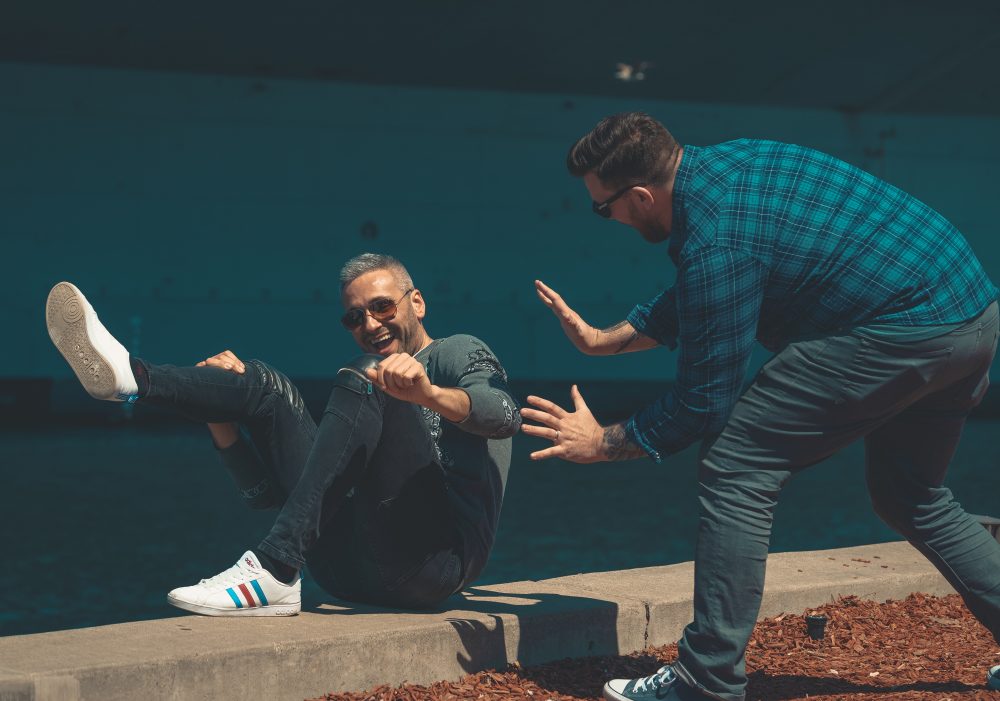“I view play as engaging openly, curiously and spontaneously with the world” – Interview with Play specialist Diane Marks
Psychiatrist and play researcher Dr. Stuart Brown describes play as “a state of being, purposeless, fun and pleasurable”. Is this your take on play?
Absolutely! Purposeless in the sense that it is free-flowing without a sense of where it may go or what form it might take, but that does not mean it is without benefit, even beyond the sheer fun of it. In this ‘state of being’ we are fully present with the experience (similar to Cikszentmihalyi’s ‘flow’)and “absorbed in play to the unfolding experience” as Winnicott described. I view play as engaging openly, curiously and spontaneously with the world – and in that sense, every day can be a play day!
Being playful and having a playful attitude are being discussed in terms of improved relationships, enhanced creative problem-solving skills, and better mental health. Can you tell us the benefits that play bring?
Play, in it’s many different forms, has multiple benefits. One of these is about connection with others as it is a relational act, a co-created shared experience, and a form of communication. Play is, importantly, a form of self-expression, a way of connecting with our unique true self and releasing the potential of this. Froebel described play as the ‘free expression of what is in the ..soul’. Creativity is another benefit of play – a positive state of mind, freeing up our imaginations, making connections between things, experimenting and learning. Real play, in whatever form it takes, is intrinsically fun and pleasurable. It is energy giving and I would argue, an essential part of our well-being.
Have we forgotten how to play?
For many of us, yes – but it is an innate ability we all have. Panksepp, a neuroscientist, held that play is ‘hard-wired’ into our brains. We all have the capacity for play, that spark resides within each of us and may just need some help to reignite it! Sometimes we have our ‘adult’ versions of play which often take the form of games but these can have a competitive element attached or the pressure of doing it well, and once this happens it is no longer ‘purposeless’ and lessens the potential of play. Or in some cases, we may just have forgotten toplay, caught up in the demands of busy ‘doing’ focused lives with long lists of tasks to tick off. It starts with recognising the value of play, bringing attention to the ‘being’ element of our lives. Winnicott said ‘On the basis of playing is built the whole of man’s experiential existence’. Our Yurt ‘Let’s Play’ session is designed to help people explore their relationship with play and to actually play.
Do you think that society have an impact on our perception of adult play?
Indeed – is it acceptable to play in adulthood or is this only restricted to childhood? Many people view play as something that resides well and truly in childhood and not part of being a ‘grown up’ adult. But as an adult, through play we bring the positive aspects of that child within us. Society may still hold the ‘work ethic’ developed in the Industrial age for our adult lives, but this is no longer the most appropriate way to deal with the challenges we face in the age we live in. I think there is a changing tide though, as more people consider their values and worklife balance features as an important issue in their lives. We have seen well-being, resilience and mental health being placed openly on the agenda and I feel that play has an important role here. Sutton-Smith, the play researcher, holds that the opposite of play is not work, it’s depression.
Are some people naturally more playful than others? Or is it a skill that we can cultivate?
We all have the capacity for play. Play takes many forms and Dr Stuart Brown identified different play personalities – some of us may have a preference for a certain type of play while others may more readily access many different types of play. I don’t think of play as a skill, to me that suggests an associated skill level, an expertise or not being very good at it, a right and wrong way – and there is no place for judgement in play! There can be blockers to play – the environment, our personal history, ‘permission’ to play, our ease of letting go of purpose, etc. but play is a wonderful innate ability we all have within us when we are born – which we may just need a little help reconnecting with it.
Do you think there is a relationship between play and success?
Yes, whatever success means for each of us – be it in our personal lives or in our careers.
It’s said that no-one lies on their death bed and says ‘I wish I’d worked more’ – quite the opposite. Schaefer said ‘We are never more fully alive, more completely ourselves, .. than when we are at play’. When we spend time at play, it gives us energy and we bring that energy to our relationships and our work. The unique potential in all of us can be released by bringing play into our lives more.

